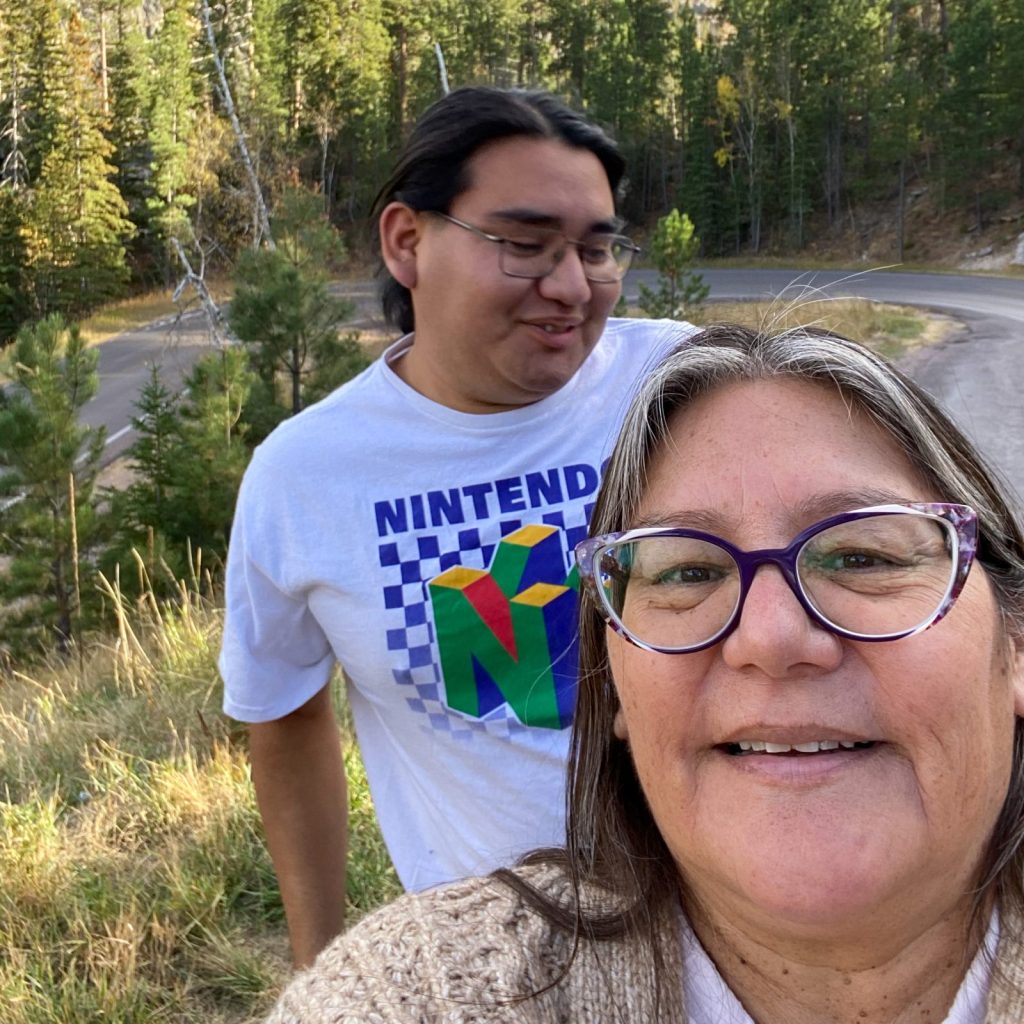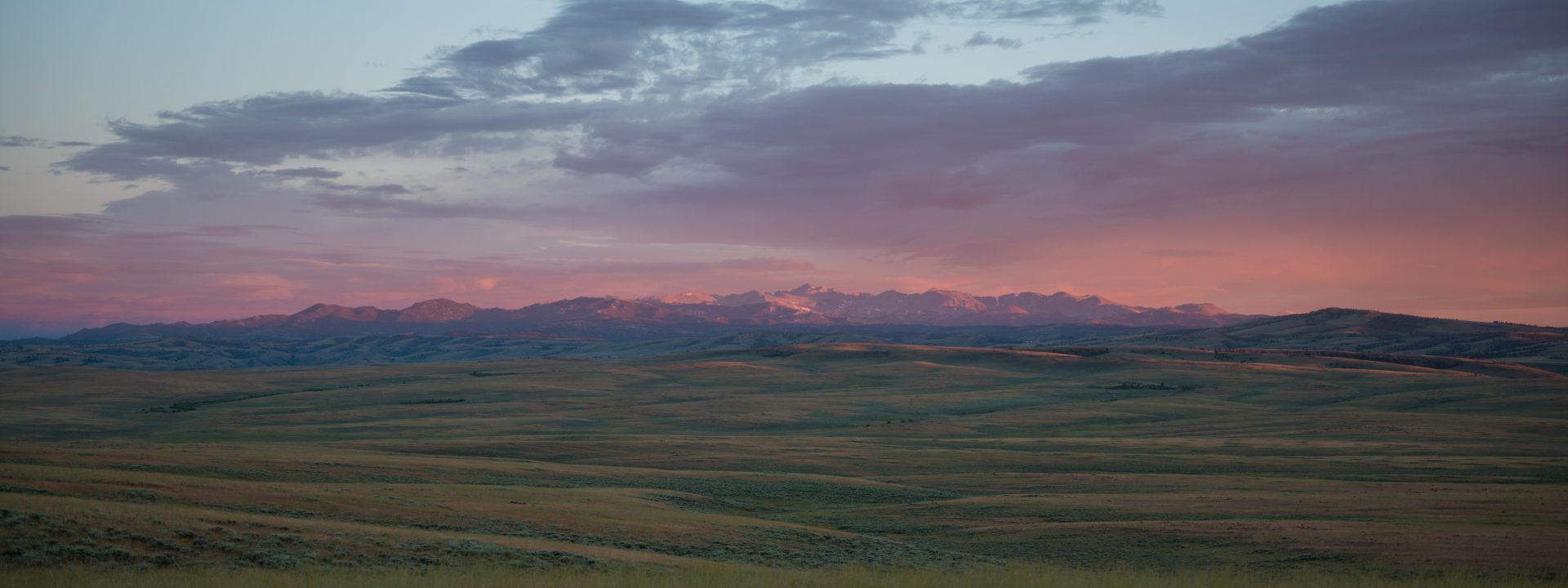My Son, A Pair of Rattlesnakes, and the Real Story Behind “Turkey Day”
I have a child who is on the lower end of the autism spectrum. As a kid, he was connected closely to the environment and our Native beliefs. He loved being in nature and spoke to all creatures.
One adventure I remember very clearly was a family excursion in the Wind River Mountains. My son was seven or eight at the time. We spent all day in the mountains: fishing, picking berries, and taking pictures. At some point, unbeknownst to me, my son spoke with two baby rattlesnakes and put them in his pants pocket.
That evening, as our son was getting ready for bed he said, “I need to make a bed for my friends.”
When he showed me his “friends,” I freaked out. I took them quietly to my husband, who assured our son he would put them in their own bed. After my husband “put the baby rattlesnakes to bed” — i.e. released them back into their environment — he told me our son could have gotten seriously hurt. Baby rattlesnakes are more venomous than adults. My husband shared that our son’s connection is what saved his life because he spoke to them and treated them with respect.

Now, at age 27, our son’s connection to the natural world has shifted, along with his beliefs about our culture. He follows young people on Youtube who share his interests. For instance, he’s obsessed with a Youtube channel called Star Wars Theory, which believes Disney is destroying the Star Wars franchise. (Hahaha.) This fascination might seem harmless, but by immersing himself in this online community — by devoting all his energy to embracing a make-believe world — he’s neglecting his ties to his own family and culture. The value system I’ve worked hard to instill in him is slipping away.
Since COVID, his viewpoint has gotten narrower — to the point he questions our beliefs and our existence as Native people of Turtle Island. “Turtle Island” is our name for North America, or the earth. It stems from our creation story and celebrates the notion of one land that all people lived upon. My son now scoffs at the concept. “People crossed the Behring Straight,” he says. “People need to know we evolved from apes, not from ants living underground.” In a technical sense, he’s not wrong about the Behring Straight, but turning his back on the stories we hold sacred is disrespectful. It’s like going to church and telling the priest that God doesn’t exist.
As a mother, I am worried. He is a young Native man who is losing the strength and courage to resist colonization. When one Native person is lost to colonization, we can lose a whole tribe. I’m glad my son has found a way to fit into our modern world, but that shouldn’t come at the expense of his heritage.
As a Native woman, I think about colonization a lot. But this time of year, with Thanksgiving looming, it takes center stage in my mind. To me — and to many Native people — Thanksgiving is not a feel-good holiday. It’s a painful reminder of the violence and injustice committed by white colonizers against us.
I’m glad my son has found a way to fit into our modern world, but that shouldn’t come at the expense of his heritage.
Sandy Whitehair
In the weeks leading up to Thanksgiving, I always make it a point to talk with my children about Hopi or Dakota/Lakota life and cultural teachings. Recently, with my son turning his back on our traditions, it feels more urgent than ever to teach him — and all my children — about the full story behind Thanksgiving. To decolonize the holiday.
Let’s be clear: Thanksgiving is based on a story written from one point of view. In that story, white settlers and Native Americans came together to share a harvest feast. This portrayal conjures up images of harmony and respect. It implies that the colonizers’ takeover of North America was amicable. Many Americans believe this story to be fact. But it’s not so simple.
That charming “first Thanksgiving” was a myth, dreamed up in the 1800s. Yes, tribal people had been interacting with white settlers. But those ties were less about friendship and more about diplomacy. There may have been one peaceful meal together, but that doesn’t make up for the theft that had occurred the year before, when the pilgrims robbed Native storehouses and graves. And it certainly doesn’t make up for the centuries of oppression, violence, and genocide that followed.
Native Americans of Turtle Island have been reeling from the atrocities of colonizers for over 500 years. In the 15th Century, the Doctrine of Discovery, issued by a series of popes, essentially authorized imperial powers to invade non-Christian lands and impose Christianity on Indigenous populations. In the 1800s, Manifest Destiny was the word of the day: the belief that white people were destined to expand westward across North America. Both ideologies have had devastating effects on Indigenous communities.
Over the centuries, Native people have fought to save our homelands, only to be forcibly removed. We were coerced into signing treaties that stole our lands. We were beaten, raped, and murdered while the Federal government sought to forcibly assimilate our children in boarding schools.
So much for harmony and respect.
Thanksgiving is not a feel-good holiday. It’s a painful reminder of the violence and injustice committed by white colonizers against us.
Sandy Whitehair
Decolonizing Thanksgiving is to recognize the truth of the holiday for Native Americans. This holiday is filled with stereotypical portrayals of Native peoples: generic, dark-skinned Natives in generic loincloths and headdresses. This loses the nuance between different tribes and freezes us in time, feeding into the myth that we are a relic of the past. Celebrating Thanksgiving with no acknowledgment of the intolerance baked into its history is perpetuating our oppression.
Sharing is a Native belief. Native people on the East Coast saved the white man from dying. We fed them. We taught them how to farm. We even shared the idea of democracy, upon which the constitution is based. In return, we were murdered, robbed, and subjugated.
Before indulging in the feast of Thanksgiving, please remember that we, Natives of Turtle Island, are still here! And we are still fighting for our survival. We are a living, thriving community with a rich history.
As for me? I’m sharing that rich history with my son this month. I’m encouraging him to read books by Native authors. I’m suggesting Native films to watch (no offense to Star Wars). And I’ll do everything I can to help him rekindle the spiritual and cultural connection he felt as a little boy, when he picked up those rattlesnakes. (Maybe I’ll encourage him to leave the wildlife outside this time, though).
Sandy Whitehair is WOC’s Tribal Conservation Director. She is an enrolled Hopi member with affiliation to the Dakota/Lakota people of South Dakota.

